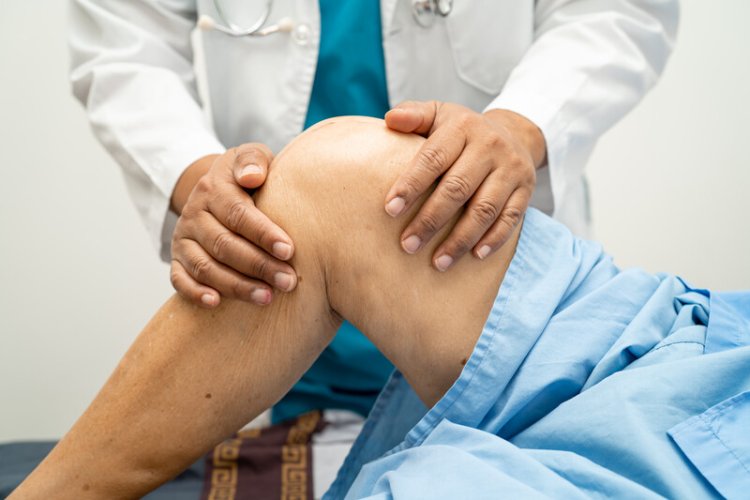Do you have knee pain? Perhaps Telehealth Will Provide the Relief You have Been Seeking
Almost everyone experiences it at some point in their lives—that dull ache or sudden sting in the knee that makes treks seem longer and stairs seem higher. Many people find it to be transient, frequently as a result of a change or a challenging workout. However, for some people, particularly those who have osteoarthritis, knee discomfort can last for months or even years, making daily living difficult.

The good news? According to a recent study, telehealth—yes, consulting a doctor from the comfort of your couch—may be a useful strategy for easing knee pain, increasing mobility, and even aiding in weight reduction.
Why Does Knee Osteoarthritis Hurt So Much? What Is It?
The most frequent cause of persistent knee pain is osteoarthritis (OA) of the knee. It is the age-old "wear and tear" issue where the knee joint's cushioning cartilage deteriorates over time, leading to discomfort, stiffness, and swelling.
Knee OA affects almost one in four persons over 40.
In the United States, it is the cause of more than 600,000 knee replacements annually.
What is the annual cost of healthcare? Over $27 billion.
Although this ailment is common and expensive, it is not often treated as well as it may be.
What is the Standard Treatment for Knee Osteoarthritis?
Although there is not a single, universally applicable approach, treatment typically centers around three main goals: weight loss, exercise, and pain management.
The following are a few common treatment choices:
Topical gels that reduce inflammation, such as diclofenac
Oral drugs like acetaminophen or ibuprofen
Injections of steroids
Programs for movement and physical therapy
When all else fails, major surgery, such as a knee replacement, is typically saved until last. Additionally, some therapies are discouraged because of the hazards and lack of long-term benefits, such as opiates or unneeded procedures.
Is Telehealth Actually Beneficial? Yes, According to a New Study
As virtual treatment became more popular during the COVID-19 pandemic, researchers started to wonder if telehealth could help patients with knee OA in the same way that in-person therapy did. According to a recent study with almost 400 individuals, it can—and then some.
The study operated as follows:
Every participant was overweight or obese and had osteoarthritis in their knees. Three groups were formed out of them:
Group 1: Having access to an OA education website that offers details on self-care, exercise, and pain management.
Group 2: The same as Group 1, but with a physical therapist guiding movement and exercise for six virtual sessions.
Group 3: All of Group 2 plus six video consultations with a nutritionist who specializes in weight loss.
what they discovered after six months:
Groups 2 and 3 saw noticeably better pain reduction than Group 1.
The discomfort in Group 2 decreased by roughly one point.
This study demonstrates that virtual treatment for osteoarthritis in the knee is not merely a band-aid solution; rather, it may be a component of long-term care in the future. People's feelings improved throughout the course of a year or longer, not simply momentarily.
Although telehealth and in-person care were not explicitly compared in this study, it is evident that well-designed virtual programs can produce significant results. Additionally, telemedicine could be the sole practical option for those who find it difficult to visit a clinic because of time constraints, mobility challenges, distance, or caregiving obligations.
The Bottom Line
No longer merely a pandemic workaround, telehealth has the potential to be an effective treatment for long-term ailments like osteoarthritis in the knee. Without leaving their living room, patients can reduce discomfort, restore their mobility, and even lose weight with a well-designed virtual program.
Inquire about telemedicine possibilities with your healthcare provider if you are experiencing knee discomfort. A video call could bring relief.
What's Your Reaction?




















